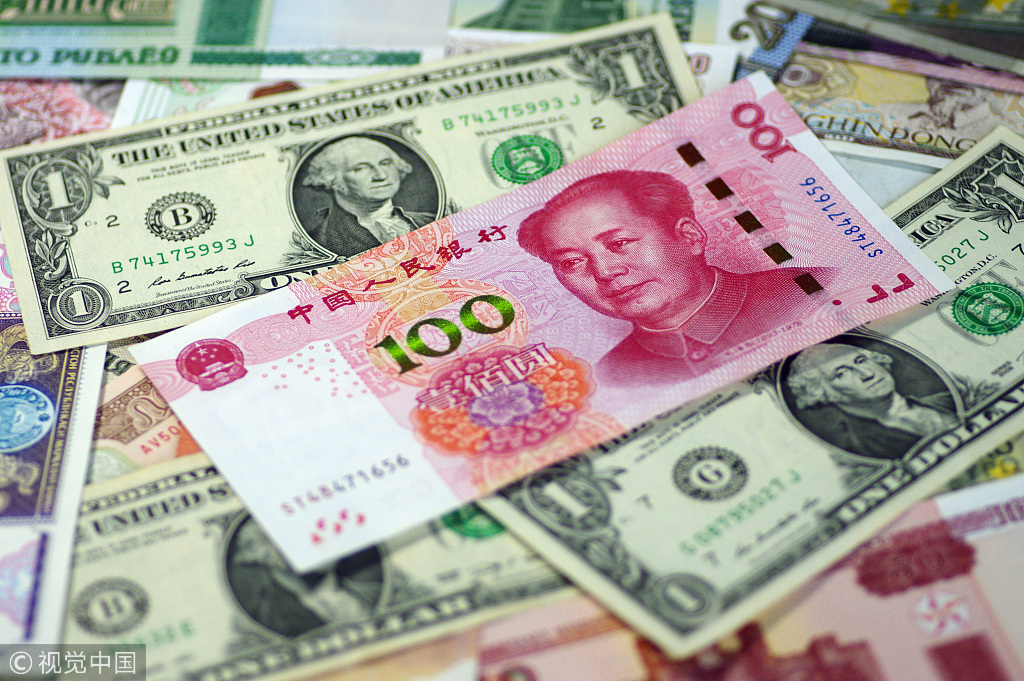Lenders asked to assess forex, hedging risks of borrowers


Commercial banks in the country, which provide foreign exchange loans to the nonfinancial private sector, must evaluate the borrowers' foreign exchange risks and their hedging capabilities, according to an official of the State Administration of Foreign Exchange (SAFE), the country's foreign exchange regulator.
For foreign currency debt without hedging arrangements (including natural hedging and financial hedging), the banks may need to reserve more capital as a cushion to prevent defaults, in accordance with the Basel III requirements.
"Risks from overseas debt issuance of property companies without any foreign exchange income, and local government financial vehicles, should be monitored and notified, to avoid a currency mismatch," said Sun Tianqi, chief accountant of SAFE, at the recent annual meeting of the China Financial Forum.
Measures are also being studied to discourage companies from investing in sophisticated foreign exchange derivative products that are beyond their professional capabilities, according to Sun.
Meanwhile, the government's implicit guarantee on companies' cross-border debt should be controlled, to reduce moral hazards, he said. "We should pay more attention to the foreign exchange and foreign currency interest rate risks of companies that are related to their overseas bond issuances."
Some international organizations, including the International Monetary Fund, have warned about the risks due to a currency mismatch, which exists when a borrower funds its operations in one currency while the earnings derived from these operations accrue in another currency.
Developing the local currency-denominated bond market can help China reduce its reliance on foreign-currency financing, said experts. They said the country should consider further opening up to foreign direct investment as it is a more stable mechanism for foreign capital inflows than debt.
Improving the exchange rate mechanism and increasing its flexibility are other measures that the country can adopt to reduce the risk of currency mismatch, said Sun.
To prevent exchange rate risks, the SAFE official suggested that in case of companies that rely on raw material and equipment imports but have no foreign exchange income to repay their foreign exchange loans, banks should take account of the foreign exchange rate and commodity price fluctuations, foreign currency interest rate risks and the companies' hedging arrangements.
Government departments, including the central bank and other financial regulators, should build a mechanism under which they can share data related to international balance of payments, foreign investment in domestic bonds, stocks and derivative markets, as well as information about commercial banks' foreign exchange risk regulation and monitoring indicators (such as cumulative foreign exchange exposure and foreign exchange liquidity), Sun said.
Zhu Min, head of Tsinghua University's National Institute of Financial Research and former IMF deputy managing director, said that the yuan exchange rate is likely to remain stable in 2020, while large capital inflows will continue and a strong monetary policy will continue to boost high-quality, steady economic growth.
China's foreign exchange market maintained a basic equilibrium in October, according to SAFE data, indicating a balanced supply and demand relationship. Cross-border capital flows also remained stable, including an equilibrium of foreign exchange settlement and sales by banks-a deficit of $4.4 billion in October, lower than the average of the first nine months.
Foreign-related receipts and payments by banks for their customers represented a surplus, official data showed. The non-banking sector, including companies and individuals, registered a surplus of $10.9 billion in foreign-related receipts and payments, versus a slight deficit in the March-to-September period.
Foreign exchange supply through major channels of inflows rose steadily, and cross-border capital inflows from foreign direct investment and securities investment continued growing on a yearly basis, said Wang Chunying, spokeswoman of SAFE.
"Despite the complex and challenging external environment, China's economy has shown great resilience, potential and vibrancy. The economic performance remains within a reasonable range and the high-level opening up is advanced, laying a solid foundation for the stability of the foreign exchange market," said Wang.



































